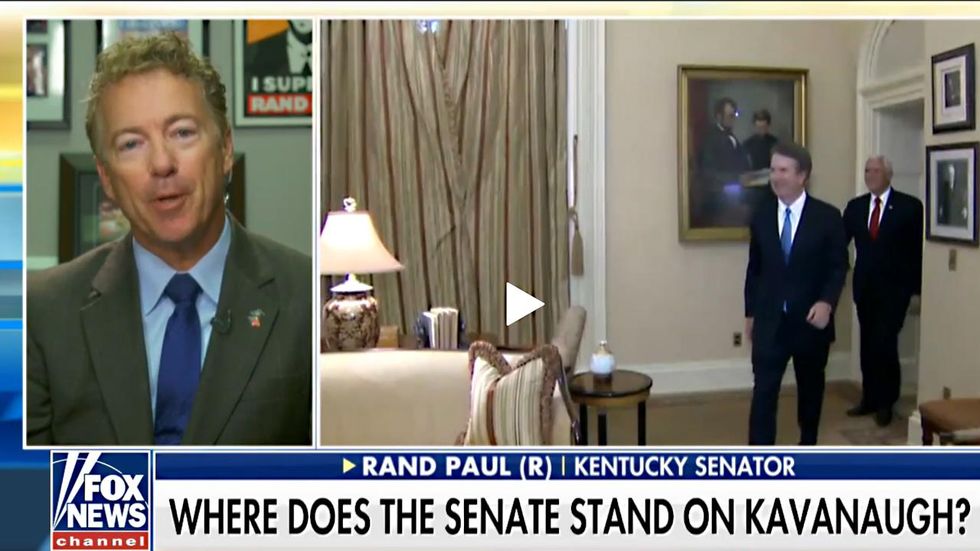
Sen. Rand Paul (R-Ky.) said Sunday he has some concerns with Supreme Court nominee Brett Kavanaugh's stance on privacy, Fourth Amendment. (image source: YouTube screenshot)

Sen. Rand Paul (R-Ky.) said Sunday he has some concerns about the nomination of Brett Kavanaugh to replace Justice Anthony Kennedy on the Supreme Court.
President Donald Trump’s appointment of Kavanaugh has polarized many in the Senate, the report noted, and many have kept quiet about their opinions. Paul is considered a swing vote in the nomination.
Appearing on “Fox & Friends,” Paul said he is concerned Kavanaugh could cancel out Justice Neil Gorsuch's vote on the Fourth Amendment, which protects against unreasonable searches and seizures. He implied that Kavanaugh would be OK with the National Security Agency collecting phone records from millions of Americans, for example.
In an opinion, Kavanaugh defended the NSA by writing that law enforcement needs can sometimes outweigh “the intrusion on individual liberty.”
Paul pointed to information revealed by NSA whistleblowers Edward Snowden and others who have said the government was "collecting all of our metadata, all of our phone records and storing it in Utah. I mean millions and millions and millions of pieces of data. Basically, Kavanaugh ruled that he was just fine with it. That basically, the national security required it.”
Kavanaugh wrote, in part:
Even if the bulk collection of telephony metadata constitutes a search,[…] the Fourth Amendment does not bar all searches and seizures. It bars only unreasonable searches and seizures. And the Government’s metadata collection program readily qualifies as reasonable under the Supreme Court’s case law. The Fourth Amendment allows governmental searches and seizures without individualized suspicion when the Government demonstrates a sufficient “special need” – that is, a need beyond the normal need for law enforcement – that outweighs the intrusion on individual liberty. Examples include drug testing of students, roadblocks to detect drunk drivers, border checkpoints, and security screening at airports. […] The Government’s program for bulk collection of telephony metadata serves a critically important special need – preventing terrorist attacks on the United States. See THE 9/11 COMMISSION REPORT (2004). In my view, that critical national security need outweighs the impact on privacy occasioned by this program. The Government’s program does not capture the content of communications, but rather the time and duration of calls, and the numbers called. In short, the Government’s program fits comfortably within the Supreme Court precedents applying the special needs doctrine.
Paul disagreed.
“I think if we give up our liberty for security, with what [Benjamin] Franklin said, and that's neither -- neither liberty nor security,” Paul said.
Paul also said that at this point he is “undecided,” but added that he is “somewhat persuaded to have an open mind because this is President Trump, who did such a great job...in Justice (Neil) Gorsuch.”
Kavanaugh previously wrote in the Minnesota Law Review in 2009 that then-independent counsel Kenneth Starr's investigation into former President Bill Clinton was a mistake.
It’s “vital that the President be able to focus on his never-ending tasks with as few distractions as possible,” he wrote.
Paul said he’d welcome the opportunity to discuss privacy issues with Kavanaugh.
“I'm concerned about Kavanaugh and we're going to have a hopefully open and long and far-ranging conversation about this,” Paul said.